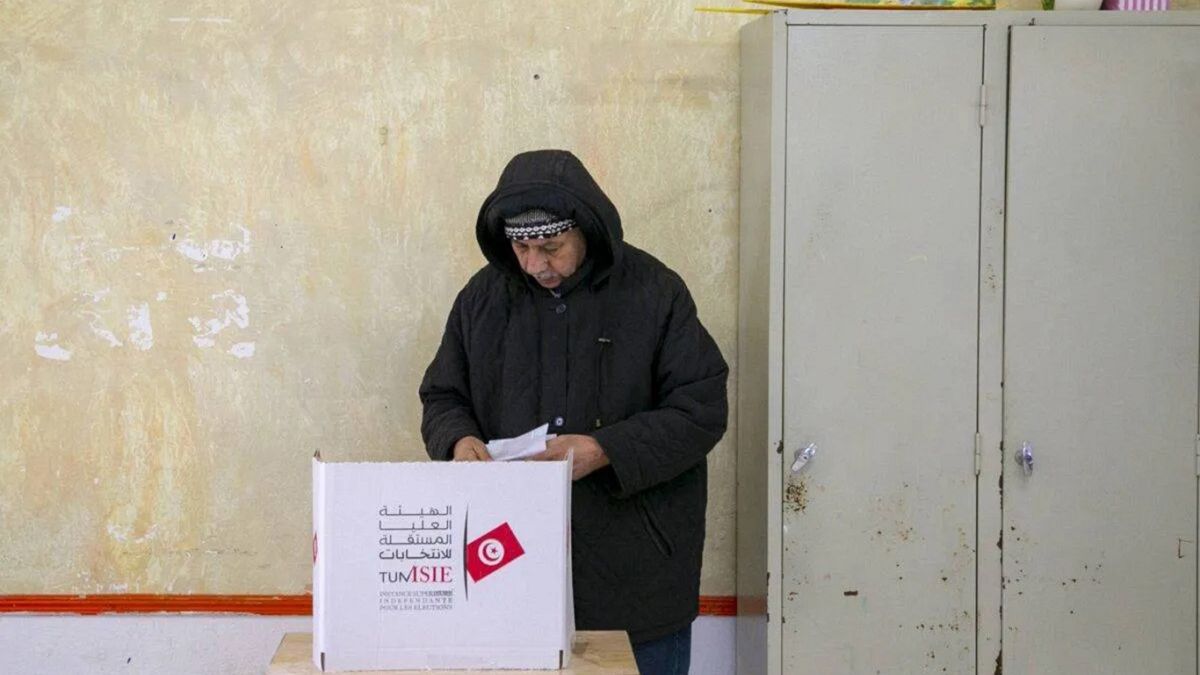Tunisians are casting their votes in the second round of parliamentary elections. They're seen as a conclusive step in President Kais Saied’s push to consolidate power.
Tunisia’s president and its shaky, decade-long experiment with democracy are facing an important test on Sunday as voters cast ballots in the second round of parliamentary elections.
Turnout was just 11 per cent in the first round of voting last month, as many disaffected Tunisians stayed away and the influential opposition Islamist party boycotted.
The runoff elections on Sunday are being watched around the Arab world. They're seen as a conclusive step in President Kais Saied’s push to consolidate power, tame Islamist rivals and win back lenders and investors needed to save the teetering economy.
Voters are choosing lawmakers to replace the last parliament, led by Islamist party Ennahdha, which Saied suspended in 2021 and later disbanded.
He then had the constitution rewritten to give more power to the president and less to the legislature.
Analysts note a growing crisis of confidence between citizens and the political class since Tunisia’s 2011 revolution unleashed Arab Spring uprisings across the region, and led Tunisians to create a new democratic political system once seen as a model.
Polls opened at 8am local time on Sunday, except in restive regions near the Algerian and Libyan borders where authorities are limiting voting hours for security reasons.
The turnout rate, an important sign of the elections’ legitimacy, is expected to be announced on Sunday evening, and the election results in the ensuing days.
In the first-round elections, 23 candidates secured seats outright in the 161-seat parliament, either because they ran unopposed or because they won more than 50 per cent of the vote.
In Sunday’s runoff, voters are choosing among 262 candidates seeking to fill 131 seats.
